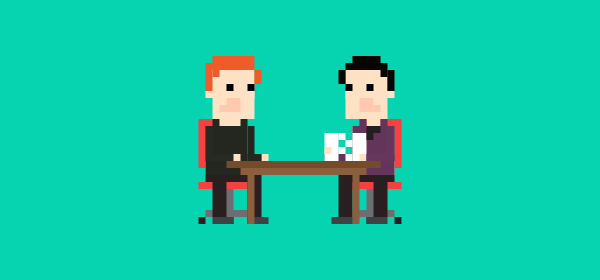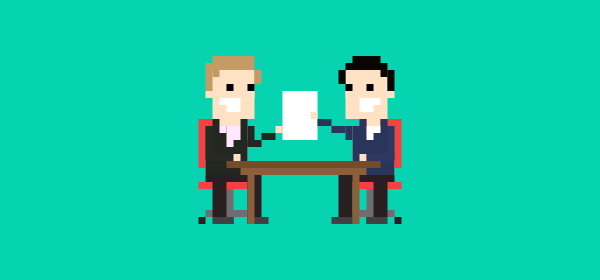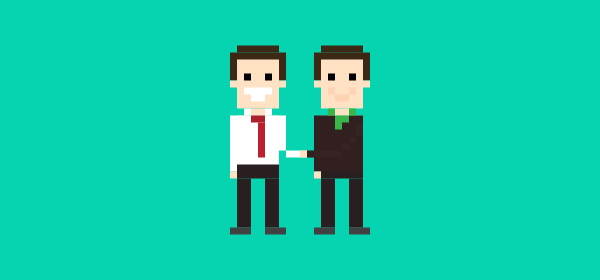No one likes to ask difficult questions. When put in a situation of potential conflict or social awkwardness, we tend to shy away and opt for a more comfortable scenario.
Unfortunately, when you work for yourself this can greatly affect the success of your business. There’s no sales team to bring in new clients, no project manager to make sure sure everything is setup and no irate boss pressuring you to get the project done on time.
It’s not surprising then, that the less enjoyable areas of our business tend to get pushed into a corner and ignored. We prefer to opt for “comfortable scenarios”.
Back in the Day…
When I started freelancing nearly a decade ago, I was an eager project beaver. When a potential project hit my inbox, I’d thank the freelance gods. I’d then quickly reply and fire off my tire kicker questionnaire. If the client took the time to fill out the form, I’d jump into a proposal and hope for the best. My attitude was that my work would speak for itself. After all, they’d contacted me.
In hindsight it’s easy to see why I wasn’t very successful at landing new projects. I was completely overlooking one important area of my business, that of “The Client Interview”.

Why? Because they scared the crap out of me. Jumping on a call with a complete stranger wasn’t high on my list of fun stuff to do. But it was limiting me. It limited the work I could take on. The quality of client I worked with and finally the budgets I was handling. I was very much at the bottom of the freelance ladder.
With nothing to lose, I decided to storm out of my comfort zone and start conducting Client Interviews.
Why Client Interviews Are Important
Client Interviews are little more than a good old fashioned chin-wag. They do however play a very special role: They help you to understand your client’s problems at a deeper level and they help your client to see you as an authority, and someone in whom they can place their trust. Trust is the basis of any relationship and a proposal goes nowhere without that vital ingredient.
I understand that client interviews can seem like a lot of work. Why jump on a call if you can get everything you need from a few emails and a questionnaire, right? But we work in an industry that’s built on relationships. And it’s very difficult to forge a relationship via email. Generally we’re poor communicators when it comes to the written word, so connecting in the real world, just makes sense.
I’ve discovered that some questions must be asked if you want your business to succeed and even thrive. Here are my five, must ask questions during your first client interview:
1. How Will You Measure the Success of This Project?
If a customer doesn’t know whether working with you has improved their business, then should they have hired you? It’s paramount that they can track how your work has improved their situation.
A website needs to generates signups, makes sales, create interest in a new product or any number of other measurable goals. Your customer needs to know that the money they are going to invest, is just that, an investment.
So make no apologies when you ask; "How will you measure the success of this project?" or to put it another way, “What will a home run look like for you when we’re finished”. Without clearly defined goals you’ll just be pushing pixels or code, and we don’t want that.
2. Why Do You Need This Project to Go Ahead? Or, Why Is This Project Happening?
This leads on nicely from the previous question.
So, let’s go back to the issue of designing or redesigning a website. This is a request that designers hear on a regular basis, but have you ever asked your customer why? Why do you want this redesign?
It’s your job to ask why, not "When do you need it by?"
The reason a client contacts you can be many and varied. Knowing why (in the client’s mind) a project should go ahead can help you get to the bottom of the real problem. This means you can be more effective in your work and in prescribing the right solution.
Let’s look at a quick example: John tells you that his company needs a new website because sales are falling. They automatically presume it’s because their design is a little dated and that a facelift will get them back on track. But you know better…
There could be dozens of reasons for the recent decline in sales, and it’s on you to dig deeper into why this is happening. The decrease could be due to:
- Fewer people getting on the mailing list and subsequently becoming customers
- An overly-complicated checkout system
- No follow up on failed payments or cart abandonment
- Less traffic
- A competitor in the space…
There are a hundred reasons why sales could be falling, and unless they start going back up, who will get the blame?
It’s on you to know why you’re being involved and how you can improve their situation.
3. What About Your Product Currently Works Well?
If you’ve ever asked this question, then kudos! Seriously. All too often we jump into a new project with little or no regard for what already works within their product. We are eager to leave our mark by tearing down the old, and building something new.
I’ve no doubt you’re an awesome designer, but do this and you risk destroying areas of a product that are already kicking ass.
Most clients will have a good idea about what works within their product and what doesn’t. So don’t be afraid to ask. It’s OK to request data and analytics should the project go further, but for right now just see how the customer feels about their current website or product.

As a side note; when I send out a proposal I often include a top end package that provides user testing. This can be incredibly valuable to both parties, as it gives your client the best possible chance to hit the ground running. Your decisions will be based on everything you’ve learned while working with your client and also based on qualified feedback from people who fit your customer’s audience. It’s great to be able to move past the age old Client / Designer conversation of "I don’t like this shade of green".
Working this way has helped me to increase client conversions by over 200%. Without user testing this would have been a considerably lengthier (and more expensive) process.
4. If Our Work Together Could Only Achieve One Thing, What Would it Be?
Here it is, we’re down to brass tacks. You’re basically asking, “If the money you’re going to pay me could only do one thing for your business, what would it be?”
This question helps your client to focus on the most important aspect of their project and business. Their answer will greatly impact how you approach the project. If their primary concern is to increase signups to their mailing list, you will no doubt approach the project differently than if it was to generate more trial signups.
Outside of this, it helps your client to focus. If they haven’t thought much about the "why" behind their project, this is a good time to start.
5. Do You Have a Budget in Mind?
Everyone’s favourite question, and usually the reason why most people avoid face to face interviews in the first place.
How much money are you going to pay me!
It’s rude to talk about money, right? We get embarrassed by having to ask… so we don’t. We hope that when we send out our proposal we’ll have guessed the right number and everything will just work out.
The harsh truth is, if you have ever lost out on a project because you were too expensive, it was your fault.
Always, get a client’s budget before continuing talks, and of course before writing a proposal. It can be a good idea to ask this on your initial client questionnaire if you have one, but always ask in person as well.
I will absolutely admit that this one takes practice. But practice means doing it. So ask over and over again until you are comfortable with it. If it really scares you, practice with a friend or even in front of a mirror, no one will see you.
When you do ask, some clients will hesitate to give a hard number, so one alternative is to ask for a ball park figure instead. Try something like the following:
"What kind of budget do you have in mind for this project John? Are we talking $5,000 to $10,000, $10,000 to $15,000, or something a little bigger? I don’t want to waste your time with some crazy proposal”
Regardless of the answer they give at this point, you are already 100% better off than you were 5 seconds before.
- If a client doesn’t want to give a budget, run!
- If a client is happy to give a ball park, or top-end number. You’re good to go… or not.
You’d be a fool to send a proposal without knowing if your client can afford to work with you. So get it out of the way as early as possible.

The questions we’ve looked at today serve as a starting point for your next client interview. There are plenty of other questions that you should probably touch on. Of course every interview is different and you have to play it by ear. But remember, you are in the driving seat. You are vetting your potential client, they should be lucky to work with you so make sure all your questions (and their’s) are properly answered.
If you’d like to learn more about how to conduct successful client interviews, head over to How to Survive Client Interviews and download my free book. It will walk you through the entire client interview process, including a full list of questions to ask, and why you should ask them. There’s also lots of great advice on getting a client’s budget from some of the industry’s top creatives. Give your next project a helping hand.
Download How to Survive Client Interviews →
Related Topics
Top